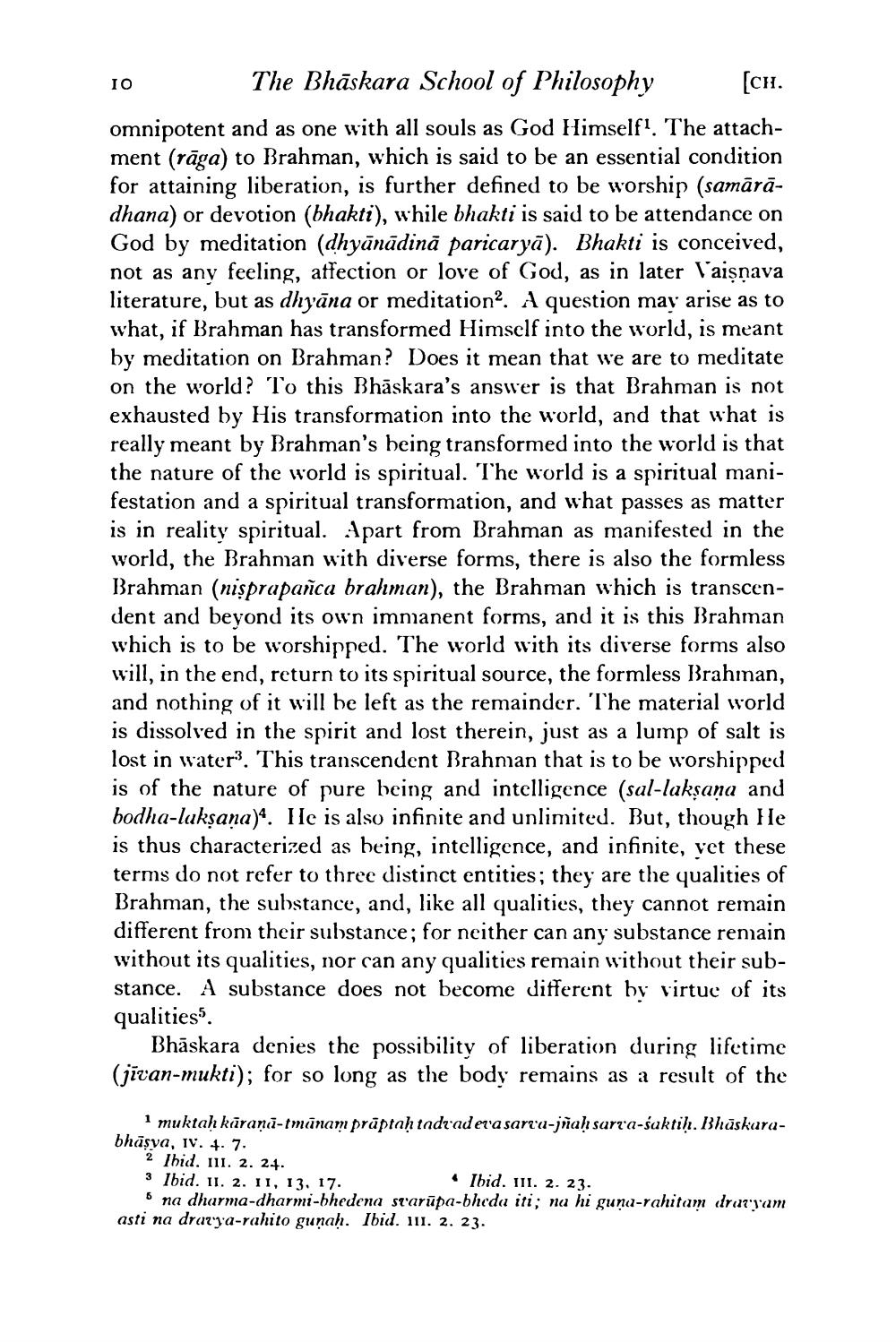________________
The Bhaskara School of Philosophy
[CH.
omnipotent and as one with all souls as God Himself1. The attachment (rāga) to Brahman, which is said to be an essential condition for attaining liberation, is further defined to be worship (samārādhana) or devotion (bhakti), while bhakti is said to be attendance on God by meditation (dhyānādinā paricaryā). Bhakti is conceived, not as any feeling, affection or love of God, as in later Vaisnava literature, but as dhyāna or meditation2. A question may arise as to what, if Brahman has transformed Himself into the world, is meant by meditation on Brahman? Does it mean that we are to meditate on the world? To this Bhaskara's answer is that Brahman is not exhausted by His transformation into the world, and that what is really meant by Brahman's being transformed into the world is that the nature of the world is spiritual. The world is a spiritual manifestation and a spiritual transformation, and what passes as matter is in reality spiritual. Apart from Brahman as manifested in the world, the Brahman with diverse forms, there is also the formless Brahman (nisprapanca brahman), the Brahman which is transcendent and beyond its own immanent forms, and it is this Brahman which is to be worshipped. The world with its diverse forms also will, in the end, return to its spiritual source, the formless Brahman, and nothing of it will be left as the remainder. The material world is dissolved in the spirit and lost therein, just as a lump of salt is lost in water. This transcendent Brahman that is to be worshipped is of the nature of pure being and intelligence (sal-lakṣaṇa and bodha-lakṣaṇa). He is also infinite and unlimited. But, though He is thus characterized as being, intelligence, and infinite, yet these terms do not refer to three distinct entities; they are the qualities of Brahman, the substance, and, like all qualities, they cannot remain different from their substance; for neither can any substance remain without its qualities, nor can any qualities remain without their substance. A substance does not become different by virtue of its qualities".
10
Bhaskara denies the possibility of liberation during lifetime (jivan-mukti); for so long as the body remains as a result of the
1 muktaḥ kāraṇā-tmānam prāptaḥ tadvad eva sarva-jñaḥ sarva-śaktiḥ. Bhāskarabhāṣya, IV. 4. 7.
2 Ibid. III. 2. 24.
3 Ibid. II. 2. II, 13. 17.
5
Ibid. III. 2. 23.
na dharma-dharmi-bhedena svarupa-bheda iti; na hi guna-rahitam dravyam asti na dravya-rahito gunah. Ibid. 111. 2. 23.




